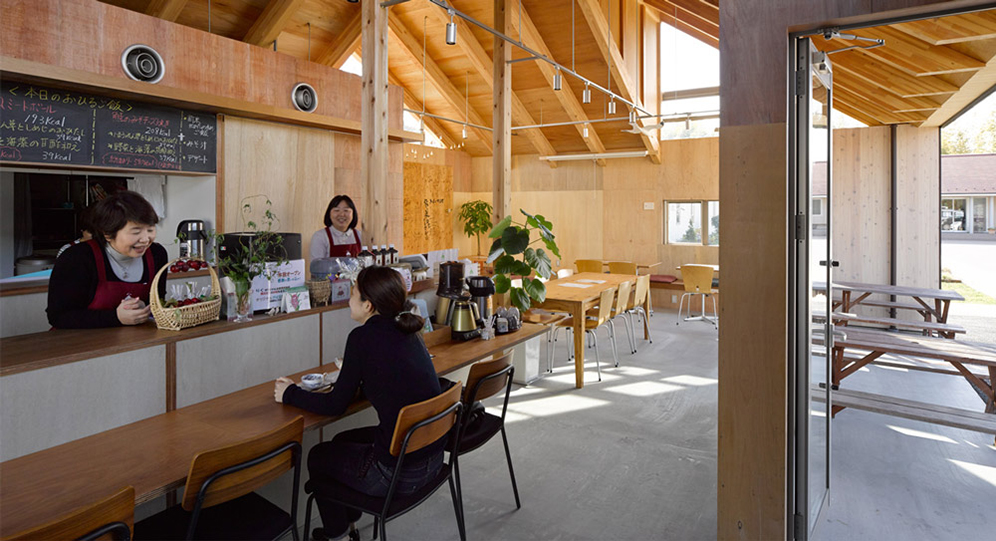
Photo: © Masao Nishikawa
EVENT: Our Road to Recovery: A Café Building Communities in Rikuzentakata
- 26 June 2019
- 18:30-20:00
- Japan House London, 101-111 Kensington High Street, London W8 5SA
- https://www.japanhouselondon.uk/whats-on/our-road-to-recovery-a-cafe-building-communities-in-rikuzentakata/
- 020 3972 7100
- info@japanhouselondon.uk
- Tweet
Eight years have now passed since the Great East Japan Earthquake, the largest major earthquake in Japan’s recorded history, which triggered a tsunami of a scale said to occur only once in a thousand years and was followed by the nuclear disaster at the Tokyo Electric Power CompanyFukushima Daiichi Nuclear Power Station.
In memory of the events of 2011, Japan House is collaborating with Japan’s Reconstruction Agency to host a series of public talks featuring Tohoku residents documenting the area’s recovery. Each talk highlights a different initiative that has contributed to reconstruction efforts and brought fresh life and vitality to communities in Tohoku.
The community-initiated and run ‘Riku Café’ opened in 2012 in the tsunami-stricken city of Rikuzentakata in Iwate. With many people living in temporary housing and few places remaining for residents to gather and socialise, the café sought to revive the community by providing a ‘living room for the city’. More than just a cafe, it is also a venue for concerts and community activities such as cooking and exercise classes.
In this event, one of the founders of the Riku Café, UNOURA Atsuko, discusses the development of the café following the events of 2011 and the various projects the cafe has initiated to promote community and healthy living in the area. Later, she is joined in conversation by social anthropologist Dr Brigitte STEGER (University of Cambridge) to explore the important role it and other social hubs play as part of the recovery. The event also includes a short live musical performance by staff from the Riku Café.
About the speakers
UNOURA Atsuko, born in Miyagi Prefecture, Japan, graduated from Tohoku Medical and Pharmaceutical University and worked at a public hospital for three years. After getting married, she moved to Tohoku and worked as a pharmacist and an accountant at her husband’s clinic in Rikuzentakata, Iwate, one of the regions most affected by the Great East Japan Earthquake of 2011. One year later, she opened Riku Café and operates it together with medical personnel, promoting healthy lunch menus.
Dr Brigitte STEGER is Senior Lecturer in Modern Japanese Studies at the University of Cambridge and Secretary General of the Japan Anthropology Workshop (JAWS). Her research specializes in Japanese society, with emphasis on the cultural history and anthropology of daily life. The tsunami disasters of March 2011 prompted her to travel to Yamada a town in north-eastern Japan, where she was the only researcher to live alongside survivors in a shelter. Her co-edited book: Japan Copes with Calamity: Ethnographies of the Earthquake, Tsunami and Nuclear Disasters of March 2011 (with Tom Gill and David Slater) was published in both Japanese and English in 2013.
Booking Essential; Admission Free
*Please note that there are only limited places, so booking will be on a first-come, first-served basis.
